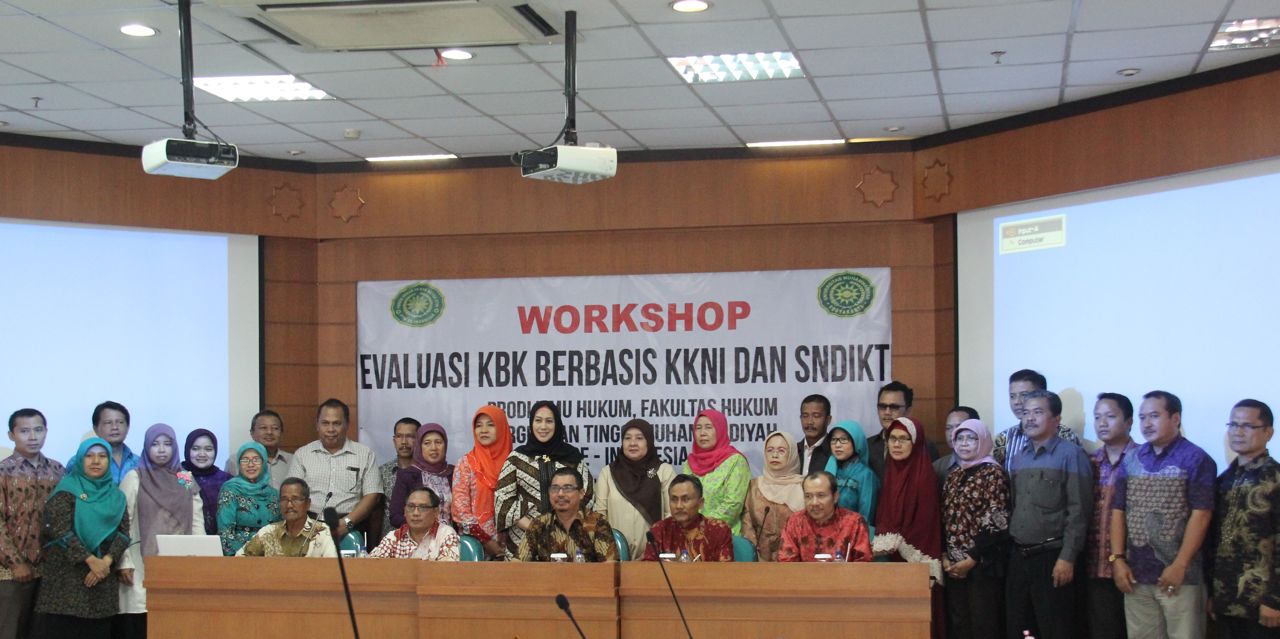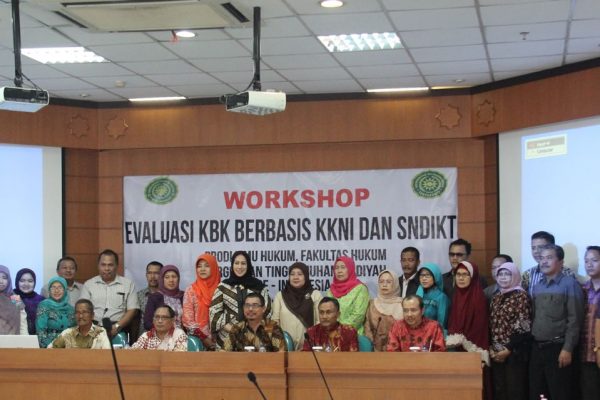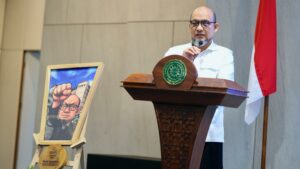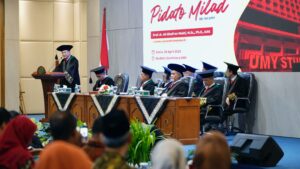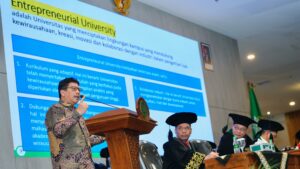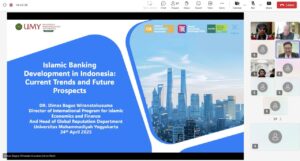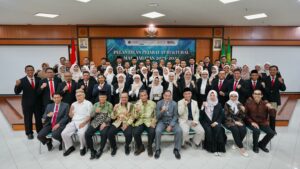Muhammadiyah-affiliated Higher Education (PTM) is expected not to hold onto government regulations in creating and implementing the curriculum. For one reason, PTM need have something different from other higher education. If PTM only stands on the curriculum managed by government, PTM would not possess additional values for the students and lecturers.
The aforementioned paragraph was uttered by Universitas Muhammadiyah Yogyakarta (UMY) Prof. Dr. Bambang Cipto, M.A. in official opening of a workshop of KKNI and SNDIKTI-Based KBK Evaluation. The workshop was organized by Faculty of Law of UMY for all PTMs across Indonesia. It was conducted in meeting hall of A.R. Fachruddin A, Floor 5, UMY, on Wednesday (27/5).
In his remark, Prof. Bambang stated that, if PTMs only hold onto the regulations and always undertake evaluation of the curriculum, it would make PTMs inadequate. They would consider that there is no perfect curriculum. Thus, he recommended that PTMs in Indonesia possess formulation from outside curriculum managed by the government.
“Fostering students’ skills is not always carried out through curriculum because we could conduct other valuable and essential programs for students such as international KKN (community service) and student exchange programs. Those two programs are necessary to hold since we could provide knowledge and fruitful experience, which students might have yet during their staying in their hometown. We, in UMY, have developed those two programs,” told Prof. Bambang.
Prof. Bambang continued that, besides those two ways, there were two other options to make PTMs distinct from the others. “The first is sending students to international competitions and the second is sending lecturers abroad. For example, several students of UMY have joined international competitions. Additionally, next year we would send lecturers of UMY to study overseas, do research, and present it to foreigners,” he asserted.
Therefore, according to Prof. Bambang, PTMs in Indonesia ought to have those four option since, if PTMs as Private Higher Education do not attempt to provide additional values, they would not have typical and divergent characteristics from other higher education, particularly state higher education (PTN).
Furthermore, a speaker of the workshop Yulianto Achmad, S.H., M.Hum conveyed that PTMs also have differences from other higher education in term of curriculum even though the curriculum stands on National Qualification Scaffolding (KKNI) and National Standard of Indonesian Higher Education (SNDIKTI). “Nevertheless, the curriculum should be appropriate with the vision and mission of our higher education. We could not copy and paste what KKNI and SNDIKTI have arranged. Hence, when we construct curriculum, we have to know our vision and mission. For one reason, it must absolutely be proper with the vision and mission of the higher education. So that, it is possible that curriculum of PTM would possess differences and certain characteristics from other PTMs,” he elucidated.
Yulianto inserted that the workshop aimed at sharing knowledge of steps and implementation of KKNI and SNDIKTI-based curriculum. The event was also as a forum for educational workers of Law Department of PTMs in Indonesia. “We gather here to establish an association to coin curriculum, especially for Law Department so that it could be proposed to DIKTI. If it is approved by DIKTI, Faculty of Law or Law Department in all universities would have the same curriculum. It is our expectation for this workshop,” said the lecturer of FH UMY.
